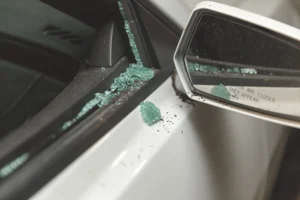Florida Loss of Value Claims

Depreciation feels like an inevitable part of owning a car. After all, the moment you drive your new ride off the lot, it starts to lose value. However, there are certain events that can cause your car’s price-tag to plunge. The biggest dollar deathblow? An accident.
While your insurance policy might reimburse you for the cost of repairing your ride, it likely won’t account for how the accident itself has put a dent in your vehicle’s value. A car with an accident in its history will tend to sell for less than a similar car with the same features that has a clean record. Fortunately, in Florida, accident victims can seek compensation for such loss of value by filing a claim with the at-fault party’s insurer.
While a typical auto insurance claim is relatively simple to resolve, seeking reimbursement for loss of value can turn an open-and-shut case into a never-ending back-and-forth. From organizing an appraisal to negotiating a favorable settlement, there are many stages where you could slip up and watch your chances of obtaining a financial award disappear into thin air.
At Weston & Pape, our attorneys can guide you through this process and handle the logistics of your claim. If you would like to discuss your loss of value case with a member of our legal team, call us today at 866-349-2912.
Proving Loss of Value: What You Need to Know
If your vehicle was involved in a collision but subsequent repairs restored your car to its original condition, you may believe that your car hasn’t lost value. After all, the bodywork has been fixed, the scratches have been buffed out, and the car runs just as it did before the accident. However, the truth is that accidents—no matter how minor—often result in a loss of value, even if the repairs seem to have brought the car back to its previous state.
In today’s digital world, many prospective buyers will run background checks on a vehicle using online tools to see its accident history. If the vehicle history report shows that the car was involved in an accident, even a minor one, the car’s market value will often drop significantly. Buyers are often hesitant to purchase a car that has been in an accident, regardless of the quality of repairs. As a result, the car may not fetch as high a price as it would have if it had never been involved in a crash. This is where diminished value comes into play.
Understanding Diminished Value: Why It Happens
Diminished value refers to the reduction in a vehicle’s market value after it has been involved in an accident, even if repairs restore its physical condition. The diminished value of a car can be attributed to several factors:
-
Accident History: When a car has been in a crash, it automatically becomes less attractive to prospective buyers, even if it has been fully repaired. A vehicle with a clean history is generally worth more than one with a reported accident, even if the latter is in excellent condition.
-
Perceived Risk: A car that has been in an accident, especially if it was a severe one, may be perceived as a higher-risk purchase. Even after repairs, there may be concerns about the long-term durability of certain components that were affected by the accident.
-
Loss of Manufacturer Warranty: In some cases, if the car has undergone major repairs, particularly to the frame or structural components, it may no longer qualify for full manufacturer warranties. This can also affect its resale value.
Diminished value is often an overlooked aspect of vehicle accidents, but it can have a substantial impact on your car’s resale price. Fortunately, if your car has been involved in an accident in Florida, you may be entitled to seek compensation for this loss of value, provided you can prove that the accident caused the depreciation.
Filing a Diminished Value Claim in Florida
In Florida, if your vehicle was involved in a collision caused by another driver’s negligence, you can file a diminished value claim with the at-fault driver’s insurance company. However, this process can be complex, and there are certain conditions that must be met before your claim can be successful.
-
The At-Fault Party’s Liability: In order to recover diminished value damages, the at-fault party must be clearly identified, and their responsibility for the accident must be established. If you were partially at fault or contributed to the accident in any way, your claim for diminished value could be reduced or denied. Florida follows a comparative negligence rule, meaning that if you are found to share responsibility for the accident, your compensation will be proportionally reduced.
-
Statute of Limitations: In Florida, you are required to file a diminished value claim within four years of the date of the accident. After this period, you may lose your right to seek compensation for the loss of value caused by the collision. Therefore, it is important to act promptly and begin the claims process as soon as possible after the accident.
Proving Diminished Value: How Appraisals and Evidence Come Into Play
To successfully recover diminished value damages, you will need to prove that the accident resulted in a loss of value to your vehicle. This is where an accurate appraisal comes into play. An appraisal is an independent evaluation of your car’s market value, both before and after the accident.
-
Pre-Accident Vehicle Value: The appraiser will determine the value of your vehicle prior to the accident. This is typically based on the car’s age, make, model, mileage, condition, and other relevant factors. The appraiser will compare your car to similar vehicles in the market, taking into account the prices of comparable vehicles without an accident history.
-
Post-Accident Vehicle Value: After determining the pre-accident value, the appraiser will then assess the damage caused by the accident and the quality of repairs. While the car may look the same as it did before the crash, it is likely that its market value has dropped. This is because, even after repairs, the car now has a history of being involved in an accident, which can reduce its appeal to potential buyers.
-
Appraisal Reports: The appraiser will provide a written report that details their findings and compares the pre- and post-accident values. This report will serve as crucial evidence in your diminished value claim. The report may also highlight any components of the car that were replaced or repaired, as well as how the repairs may have affected the car’s overall condition or performance.
Additional Evidence to Strengthen Your Diminished Value Claim
In addition to an appraisal, there are several other pieces of evidence that can help strengthen your diminished value claim.
-
Dealership Trade-In Offers: One way to establish the current value of your car is to visit dealerships and obtain trade-in offers. Many dealerships will provide a written offer based on the current market value of your vehicle, including the impact of the accident on its resale value. These trade-in letters can serve as additional evidence to support your claim for diminished value. Dealerships may explain in their offers why the accident history has reduced the car’s value.
-
Repair Records and Work Orders: Providing detailed repair records is essential for showing the extent of the damage caused by the accident and the quality of repairs performed. These records should include information on which parts were replaced, whether the structural integrity of the car was compromised, and how the repairs were made. If the accident caused visible damage to your car, such as paint discoloration or frame damage, these records will help establish the degree of the impact on your car’s value.
-
Photographic Evidence: If the accident caused visible cosmetic damage to the vehicle, such as mismatched paint or bent parts, including photos of these changes can help substantiate your claim. For example, if the repair shop had to repaint your car, and the new paint doesn’t match the original color, providing photographs of the discrepancies can demonstrate how the car’s appearance was altered. These photos can be used to show that the vehicle no longer has the same market appeal as it did before the accident.
Challenges in Diminished Value Claims
While filing a diminished value claim can seem like a straightforward process, it is often fraught with challenges. Many people are unaware of just how difficult it can be to prove that their car has lost value due to an accident, especially when insurance companies are involved. While your case may seem strong, insurers often contest these claims because they do not fall under the standard categories like medical bills or lost wages, which are more easily quantifiable. As a result, the process can be long and complicated, and there are several factors that can make a diminished value claim difficult to win.
Insurance Company Resistance
One of the primary obstacles to pursuing a diminished value claim is the resistance from insurance companies. Insurers are in the business of minimizing their financial obligations, and diminished value claims are often seen as an opportunity to do just that. Unlike medical expenses or lost wages, which are straightforward and based on documented records, diminished value is a more abstract concept. Insurance companies may argue that repairs have restored the car to its pre-accident condition, even if this is not the case in terms of the vehicle’s marketability. They may claim that the repairs have adequately addressed any damage, and as a result, they will dispute the claim, arguing that the car has not lost value or that the loss is negligible.
In many cases, insurers will also argue that a car’s depreciation is simply part of the natural aging process and that the accident didn’t have a significant impact on the vehicle’s value. This makes it challenging for a claimant to prove the specific impact the accident had on the car’s worth.
Difficulty in Proving Loss of Value
Another significant challenge with diminished value claims is proving the actual loss of value. While a car may look and feel like it has been restored to its original state after repairs, there are many factors that affect its market value. Even minor accidents can significantly lower a car’s resale value, but proving this loss requires more than just subjective opinions or casual assessments. You will need to provide concrete evidence, such as independent appraisals, dealership trade-in offers, repair records, and photographic evidence, to show that the accident has caused an actual and quantifiable reduction in the car’s value.
The problem is that even after repairs, the car may carry a history of being involved in an accident, which buyers will be able to see through vehicle history reports, like Carfax or AutoCheck. This can significantly decrease its resale price. However, calculating exactly how much value has been lost is not an easy task, and it can vary depending on the severity of the accident, the type of car, its age, mileage, and many other factors. Without strong evidence and professional appraisals, it can be challenging to persuade an insurance company to pay the diminished value.
Appraisal and Expert Testimony
One of the most important elements in proving diminished value is obtaining a professional appraisal. Appraisers are experts who can assess a vehicle’s value before and after the accident and provide an objective evaluation of the damage and how it has affected the car’s resale value. However, appraisals can be costly, and some insurance companies may dispute the findings of your appraiser, potentially leading to delays in the claims process. In some cases, insurers may request a second appraisal or hire their own expert to counter your claim.
Additionally, expert testimony may be required to provide more weight to the evidence, especially if the diminished value claim involves complex or severe damage. The need for professional evaluations and expert testimony can complicate and lengthen the claims process.
Legal Complexities and Statutory Limitations
Diminished value claims can also be complicated by legal requirements and statutory limitations. In Florida, for example, a diminished value claim must be filed within four years of the accident. If you wait too long to file your claim, you could lose the right to seek compensation altogether. This limitation means that it’s crucial to act promptly and gather the necessary evidence as soon as possible after the accident. However, even if you file within the required time frame, you may still face legal challenges in proving your case, especially if the insurer or opposing party disputes the extent of the diminished value.
Additionally, Florida follows a comparative negligence rule, which means that if you are found to be partially at fault for the accident, your compensation may be reduced proportionally based on your share of the responsibility. This can be a significant obstacle in diminished value claims, as insurance companies may argue that you contributed to the damage in some way, reducing the amount of compensation you are entitled to receive.
The Need for Legal Representation
Given the complexities involved in diminished value claims, it is essential to work with an experienced attorney who specializes in personal injury and property damage claims. An attorney can help you navigate the often confusing process, provide advice on how to gather the necessary evidence, and work with appraisers and experts to ensure that your claim is solid.
An experienced lawyer can also help you negotiate with the insurance company to ensure that your claim is taken seriously and that you are fairly compensated. Insurance companies are well-versed in defending against diminished value claims, and they may attempt to undervalue your claim or deny it outright. Having a knowledgeable attorney on your side can level the playing field and improve your chances of obtaining the compensation you deserve.
Discuss Your Florida Loss of Value Claim with a Lawyer Today
If your car was involved in an accident and its value has diminished as a result, you may be entitled to compensation. Proving diminished value requires a thorough appraisal, strong evidence, and a clear understanding of the legal process. With the help of an experienced attorney, you can navigate the complexities of filing a diminished value claim and maximize your chances of receiving fair compensation for your loss. If you believe you may have grounds for a diminished value claim, turn to the legal team at Weston & Pape. Contact us today at 866-349-2912 to discuss your case with one of our dedicated loss of value attorneys.



 Call Us Today
- It's Free
Call Us Today
- It's Free